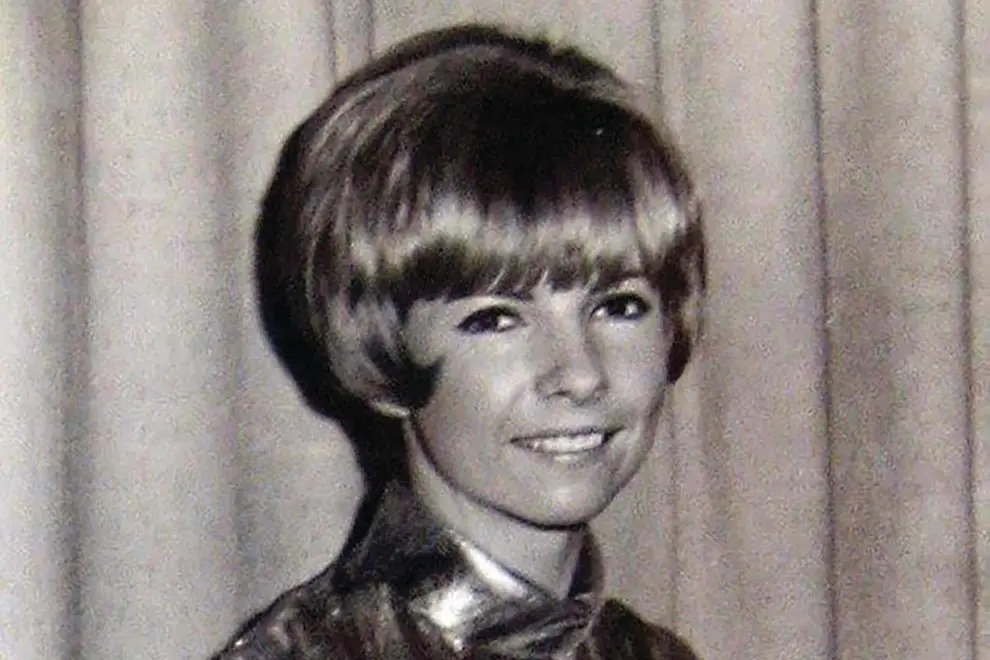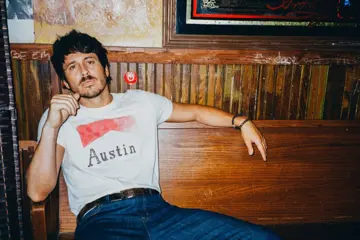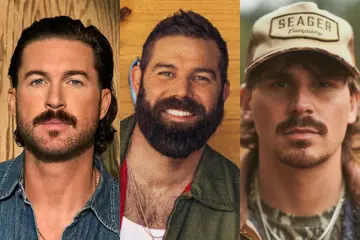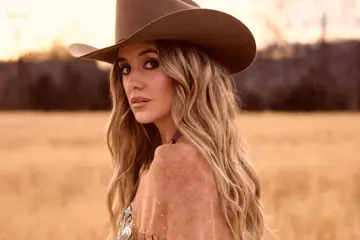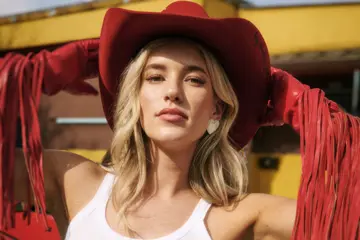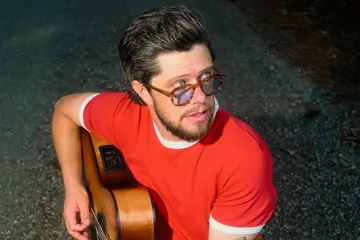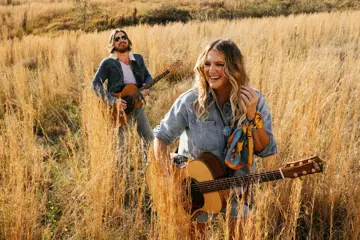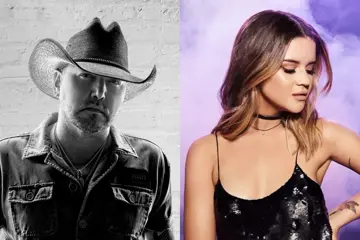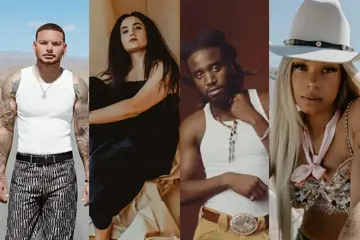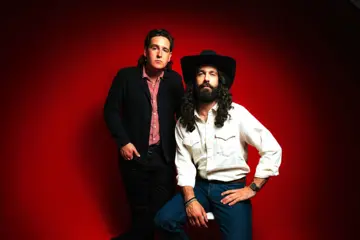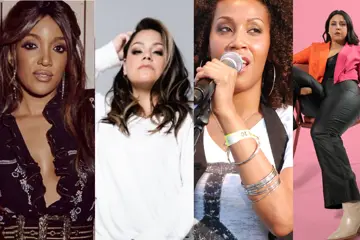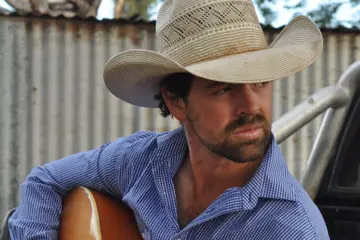Few names in Australian country hold quite as much weight as Judy Stone’s. She rose to stardom in the early ‘60s, cutting her teeth as a crowd favourite on shows like Six O’Clock Rock and Bandstand – where she was affectionately known as “the cowgirl from Granville” – before going on to dominate the club circuit as a bonafide headliner. Her talents were backed by fierce determination: in a time when the music industry wasn’t particularly known for being so welcoming to women, Stone stood her ground and charged ahead, in the process blazing countless trails for the women she’d go on to inspire.
On and off the stage, the generation-defining artist – who in 2006 was awarded a Member of the Order of Australia, formally making her Judith Anne Stone AM – embodied a feminist ethos that wasn’t just defiant for the times, but led to seismic shifts in the ways the Australian music business operated. Because of that (and so much more), Stone really is a no-brainer for the Australian Women In Music Awards’ prestigious Honour Role. She’ll be inducted into the “hall of fame”-esque roster at this year’s ceremony – which goes down in Meanjin/Brisbane this week – alongside the late, great Renée Geyer.
Stone will be present at the ceremony, where Beccy Cole (who herself has been nominated for the AWMAs’ 2023 Artistic Excellence Award) will perform a tribute to her. Ahead of the event, Countrytown caught up with Stone from her idyllic outback home – where she’s kept busy rescuing koalas and working to help her local wildlife thrive – to reflect on her whirlwind journey as a woman whose inner fire simply could not be extinguished. She faced some mighty struggles, we learned, but today she looks back with fondness as a new generation of empowered women rise to the heights she helped establish.
Congratulations on being inducted into the AWMAs Honour Roll. How does it feel to be adding this prestigious accolade to the trophy cabinet?
It's unbelievable for me! I'll be 83 in a couple of months, and it’s just so wonderful to be acknowledged after all these years... I mean, I haven't performed for about 12 years – I had to give it up about because I had cancer in my throat – so to be onstage again, among some unbelievable performers, it's a real special thing for me.
Will you be getting up and singing a song?
Join our community with our FREE weekly newsletter
Listen, if I could, I certainly would. Unfortunately the cancer interfered with my throat so I was forced to give it up – but I still love music and I'm still very much a part of it, watching what's going on; especially with the younger performers. I'm still very much a part of it in my heart.
And of course, you’ll have the incredible Beccy Cole performing a tribute.
I know! It's so wonderful because I knew her mum on Bandstand – she was a real little bopper! Her mum Carol, she was a really, really fabulous singer, and a real little dynamite. And then Becky came along, and now she's the star. It’s just amazing, really.
It’s so lovely that you two have family ties – it’ll make this AWMAs performance even more special.
It's amazing as well because there’s another singer [appearing at the AWMAs], Melinda Schneider – who is such an incredible performer – and I knew her mum as well. We toured together many, many years ago – but Melinda is still going very strong, and she does a lot of live performances in the theatre, [performing songs by] Doris Day. And she's a very well-known performer, so it's incredible that I knew her mum as well. I mean, [she and Cole] don’t really take after their mums, they’ve got their own individual styles – but it's not very often that I meet singers whose mums I knew as performers as well.
Do you remember the first time you saw Becky perform?
I actually went to see her perform up here a few years ago – I can’t remember if it was at the RSL or the bowling club, but I was very impressed. And then of course, I've seen her on the TV and stuff like that as well. She’s really good!
I’ve been reading a lot about “the Judy Stone origin story”, and I think it goes without saying that across your career, you blazed a lot of trails for women in the Australian music industry. What did that feel like in those early years? Were you kind of fighting an uphill battle?
I'll tell you: in a word, it was hell. It was hell. The thing is that you were controlled by your manager, and it was always a man, who didn't really... I mean, I shouldn't say it, because it did help me toughen up in my career. You know, back in those days you had to be tough to have a career in music – you had to be on the road, doing one-night-stands and then getting into the car and driving miles... And in those days, there wasn’t a moment of thought [for] a woman needing time to get to the gig, to iron her frock, and to put rollers in her hair.
I know it sounds very old-fashioned, but that's the era that I was brought up in. And we didn't have any women that could speak on our behalf. So I had to toughen up and make a few rules for myself – and I lost a few gigs because of it. But I'm not ashamed of the things I did to help empower women – especially younger women today; they would be absolutely mortified if they knew what went on in the past.
Could you pinpoint the moment where you started seeing things shift, and you saw that you were being put on the same sorts of pedestals, or given the same opportunities, as your male contemporaries?
Well on shows like Bandstand, it was the audience that wanted to see you – and when I started doing the club circuit, they were always getting a full house – so they didn't really have any choice but to book us. But that doesn’t mean to say they made it any easier for us.
It was silly little things, like you’d arrive with your music and your dress and everything, and there’d be nowhere to park; they didn't think they should have a car park close to the entrance so you could get out and set things up easily. I don't think there was any malice in it – there was just absolutely no thought. I know we all have to do what we have to do, but it was pretty tough when you had to carry all your music and your gear, and it was raining, and you had to go on to entertain a full house... It was shocking. I'm hoping that’s changed.
So after you’d sort of found fame and really established yourself as an artist, was it important for you to champion the women around you, and make sure those trails you blazed were being taken up by other women?
Well, I’d already had four records in the hit parade before I was able to have my own band. All my money went into paying for my own band, and the first thing I did when I put it together – and I was the first woman to do this – was have a female bass player and a female backing singer. So there was myself, two females and three males.
Did you get any pushback from that?
Yes, actually. I think in those days as well, there weren't too many female piano players. I wasn't stupid – I wasn’t [hiring a female musician] just for the sake of having a female up there, they had to be good at what they were doing to set an example. But I remember I went to perform in a club once, and the piano player was absolutely shocking. Luckily I took my guitar, and I said to the band, “Please don't play – I'll play my guitar.” Well the management said, “You'll never get booked here again.” He [singled out the piano player] and said, “You shouldn't pick on him, you know he's only got three fingers on one hand because he's the local butcher?” Looking back on it, I thought, “That is /unbelievable!”
So you had hit records and you were building up a career, and you were supposed to go out there so they could play your music – but it turns out the piano player was the local butcher and only had three fingers. No wonder he couldn't play my music! That's only a little example of a lot of things that shouldn’t have been the way they were. I don't know, maybe people think, “Oh, well, that's the way it was” – but it shouldn't have been that way.
You know, there was many a gig that I never got booked back at – especially by the guy in the car park who told me I couldn't park in the secretary manager's spot; I said, “Well, I gathered that – all I want to do is take in my music and my clothes.” And he just put his thumb up and said, “Move it.” Not a hint of respect [or acknowledgement] that I had a roomful of people there, ready to hear me sing... So I just left my car there. I just said to him, “Well, you know what you can do with your car park...” And I went in and did a fabulous concert, and I never got put back on at that club. Oh well.
I think it's a testament to your strength, though, that you still powered on and made the name for yourself that you did – you knew your worth and you were determined to see it recognised.
Not only that, but I knew what was unfair. I knew that whenever a male singer had a #1 record and all the same [accomplishments] as me, their management insisted there was a parking space ready for them. And they had minders that carried all their gear, and everyone bent over backwards to accomodate for them... Mind you, I did have a bit of a reputation – there was a [period of time] where a lot of people didn't want to look after me.
There was one incident, when I went to a gig after miles and miles of driving, during a tour in Victoria – it wasn't my problem, but I was very late [to the stage] and [the audience members] started throwing lit cigarettes at me. And I had a little tulle frock on so I walked right offstage, and the manager’s wife said to me, “You get back out there! That's what you've been being paid for!” So I said, “You get back out there!” And I shoved her over... Well, that made headlines. It went so deep, you know, where even the wives of the managers couldn't understand.
Does it fill you with hope to see a lot more women thriving in music these days, and organisations like AWMA championing the Australian music industry’s feminine energy?
We need AWMA now more than ever! I read an article in the paper recently, and it was about guitars and drums staging a takeover. They were talking about women being a part of that, and that made me so happy.
I’ll tell you this little story, I'll never forget it: when I was about five, in kindergarten, we had what they called “a singsong and music”. And the teacher bought in these little plastic drums and little plastic ukuleles – which I thought were guitars – and we were going to have a little music session. Well, the first thing I did was race over to pick up a little plastic guitar – because I knew in my heart, that's what I wanted – and the teacher said, "Oh no, no, no, Judith! That's not for little girls, that's for boys. This is what little girls play," and she gave me a triangle. And that really angered me. They had guitars and drums for boys, and triangles and piano for girls. And I had a lot of problems with that, right from the get-go.
Anyway, my heart was set on a guitar, and after wearing out my mother’s straw broom – which I used to sing into and “play” every day – my dad got me a real guitar. It cost him a shilling a week, which was a lot of money for my parents, in those days – and that guitar has been with me ever since. I just love it. And I love looking at all the [female guitarists] in the papers now – particularly the punk-rock guitarists. They were having a bit of a bad time with some of the men out there, but it's starting to get better now. That’s the reason AWMA is such a great thing.
A lot of things have changed over the years, but I know a lot of women out there are still struggling to make themselves heard, and have themselves taken seriously in the music industry. But as such a defiantly empowered and outspoken woman yourself, what advice would you give to those girls?
Well, they have to believe in themselves. Number one, they have to be really passionate – there’s no sense in starting a fire if the fire isn’t within you already. And if that fire is in you, you’ll find a way to make it burn. I mean, the first time I went to audition for Bandstand, I failed because I took my guitar. And then about six months later, I met a group called O'Flannigans, and they did the backings for The Johnny O'Keefe Show on the ABC. They heard sing in a hotel, and they told Johnny [about me], so I went down and auditioned [for his show]. Johnny gave me a song to learn – it was a Brenda Lee song – and he said, “I want you to come back next week, without your guitar...” So it's always been, “Come and sing for us, but don't use your guitar.”
I can't really be upset about that, though, because immediately I was on Six O’Clock Rock, and then Bandstand, not realising that I was the same little cowgirl they told to go away. They heard me sing a Brenda Lee song and then they signed me up for Bandstand. But if I had've rolled up to Bandstand without my guitar that first time, I probably would've been on there a bit earlier... That was my beef, but not anymore. I've gotten over it.
And you went on to become so well-known for your work as a country guitarist...
Well, not as a lead guitarist, only as a rhythm guitarist – but I always had my guitar with me. One year I was actually invited to China, to sing for their national day in October – and when I got there, I was told I had to sing in Chinese. That was a bit of a shock for me, but the lady who was looking after me, we picked a fairly easy song. I learned the melody and then I learned the words, and then I actually went on live television in China, with my guitar, singing a Chinese song while I played the chords. I figure, that was the best thing that ever happened to me... So girls, always take your guitar with you! No matter what!
Hell yeah! I’m glad your legacy shines just as brightly today as it did years ago – your induction into the AWMA Honour Roll is so well-deserved.
I can't tell you just how cool is to me. And you know what I’m really excited about? I can't wait to see – and I hope I can meet – Vanessa Amorosi. She is one of the best singers, and I really love all of her music! I love [so many women in Australian music] – Olivia [Newton-John], Helen Reddy, the darling Renée Gayer... Tina Arena is up there – right up there! I mean, whenever I see Tina Arena perform, I can't move for about half an hour afterwards, all my energy is totally gone. She's unbelievable. Jessica Mauboy... They're all absolutely brilliant performers.
See here for more information on the 2023 Australian Women In Music Awards.
